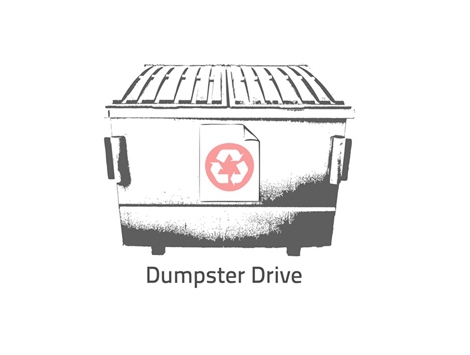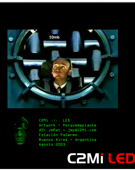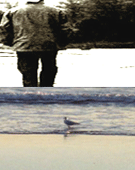Dumpster Drive is a file-sharing application that recycles digital files. Using dumpster diving as a model for recirculating unwanted objects, Dumpster Drive allows others to dig through files that you delete on your computer in a passive file-sharing network. Instead of simply erasing data from your computer, the software allows users to extend the lifecycle of their unwanted files and pass them on to others.
Full Description
The act of discarding has taken on new meaning in the digital era. It is easier, faster, and less satisfying than lighting a bonfire. We often publicize content online that appeals to the interests of others. In this context, the practice of sharing has become an act of curation. At the same time, we rarely think about the value of our ephemeral, residual data within a social context, the way we might about old books we leave on a stoop for others.
Is it possible to stumble upon a truly surprising find, a treasure among trash, online? The cultural phenomenon known as “dumpster diving” evokes the adage that one person’s trash is another’s treasure. Beyond repurposing discarded objects, the process of dumpster diving allows us to glimpse into the material lives of others. Objects end up embodying the human imprint of use and can serve as a voyeuristic lens, magnifying unique moments in time. Digging through trash gives us the vicarious sensation of peering into the private life of strangers.
Dumpster Drive (www.dumpsterdrive.com) is a file-sharing application that allows users to share their digital detritus with one another. Using “dumpster diving” as a model, the software sets up a passive sharing network for viewers to dig through files that others have deleted. In essence, the viewer extends the lifecycle of unwanted files by recirculating them and passing them onto other fellow voyeurs.
Just who owns this digital data? There is no transportable meta-data that would delineate a digital file’s entire lifecycle and list of owners, and data can be replicated in a lossless process. Thus, the question of ownership over digital files becomes much more obscured than with physical objects. Many of us are so worried about privacy, about others accessing our personal data, that we don’t even consider alternatives that favor openness and community. This is especially ironic because most of us still don’t properly secure our data, frequently opting into systems that compromise our privacy. So we neither secure nor share our digital files in proficient, meaningful ways.
Work metadata
- Year Created: 2011
- Submitted to ArtBase: Wednesday Feb 5th, 2014
- Original Url: http://www.dumpsterdrive.com/
-
Work Credits:
- Justin Blinder, primary creator
Take full advantage of the ArtBase by Becoming a Member





